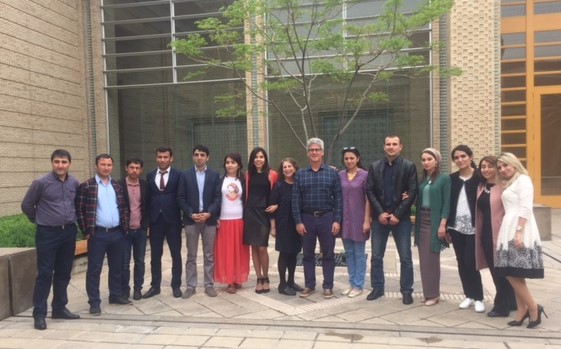Addressing Mental Illness and Physical Comorbidities in Migrants and Their Families
Addressing Mental Illness and Physical Comorbidities in Migrants and Their Families Heading link
-
Project Site Name
Prisma Research Center and University of Prishtina
-
Project Site Location
Dushanbe, Tajikistan and Prishtina, Kosovo
-
UIC CGH Faculty Contact
Stevan Weine, MD
Project/Activity Summary Heading link

This project addresses the adverse impact of migration on chronic non-communicable diseases (NCD), specifically in the area of mental illness and physical comorbidities. The overall aim of is to build research capacity in low- and middle-income countries with a focus on migration in Eastern Europe and Central Asia from two of the world’s highest migrant sending countries, Kosovo and Tajikistan. This research training program trains early- to mid-career postdoctoral researchers from Kosovo and Tajikistan in multidisciplinary approaches to NCD research through training at UIC. Additionally, this project builds research capacity at partner institutions by supporting the UIC-mentored research projects and by training an estimated 250 participants per year (both live and on-line) who are either academics, educators, practitioners, policymakers, or stakeholders on pertinent research methods, issues, and infrastructure. The project also develops a diverse network of researchers from the U.S., Kosovo, and Tajikistan dedicated to sharing knowledge and skills through convening annual meetings, trainings, and dissemination. The research training program focuses on the impact of migration upon chronic non-communicable diseases in the areas of mental illness (e.g. depression, anxiety, PTSD, and substance abuse) and risks for physical comorbidities (e.g. cardiovascular, cerebrovascular, and occupational diseases). Project partners include the Prisma Research Center in Tajikistan and the University of Prishtina in Kosovo.